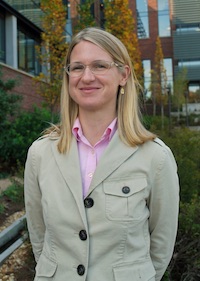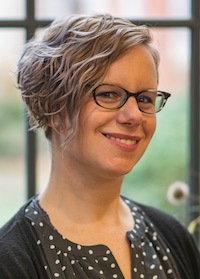Students who had submitted abstracts for the IAC graduate conference submitted 10-15 page papers by January 1st, 2021 to be evaluated by Ivan Allen College faculty judges. The author of the top paper received $1500 in travel funds. Authors who were awarded second place for their papers each received $1000. Authors who were awarded third place for their papers each received $500.
Below are biographies and abstracts of prize winners in 2021.
First Prize
 Daniel Schiff (Public Policy)
Daniel Schiff (Public Policy)
Daniel Schiff is a Ph.D. student in the School of Public Policy at the Georgia Institute of Technology where he studies the social, ethical, and policy implications of artificial intelligence. Previously, he served as the Director of Research, Evaluation, and Planning at the Philadelphia Education Fund. Daniel studied Philosophy at Princeton University, focusing on robotics and intelligent systems, before completing a Master’s in Social Policy at the University of Pennsylvania. He has published in venues such as AI & Society, IEEE Transactions on Technology & Society, the Journal of Engineering Education, the AMA Journal of Medical Ethics, and Nanotechnology and can be reached at schiff@gatech.edu or @dan_schiff.
Paper Title: The Liar’s Dividend: How Misinformation About Misinformation Affects Politician Support and Trust in Media
Abstract: This study addresses the phenomenon of misinformation about misinformation, or politicians “crying wolf” over fake news. While previous work has addressed the direct effects of misinformation, we focus on indirect effects and argue that strategic and false allegations that stories are fake news or deepfakes benefit politicians by helping them maintain support in the face of information damaging to their reputation. We posit that this concept, known as the “liar’s dividend,” works through two theoretical channels: by injecting informational uncertainty into the media environment that upwardly biases evaluations of the politician, or by providing rhetorical cover which supports motivated reasoning by core supporters. To evaluate these potential impacts of the liar’s dividend, we use a survey experiment to randomly assign vignette treatments detailing hypothetical politician responses to a real embarrassing or scandalous story. We employ a 2×3 factorial design, varying both media format (text or video story) and the manner of politician response to the negative story, and assess impacts on belief in the story, support for the politician, and trust in the media. Our results reveal the extent to which misinformation about misinformation pays off.
Second Prize
 Archana Ghodeswar (Economics)
Archana Ghodeswar (Economics)
Archana is a Ph.D. Candidate(Economics) at the Georgia Institute of Technology. Her research interest lies in the areas where Energy Economics intersects Environmental economics, Sustainable development, and the socio-economic progress of the marginalized population. She has earned master’s degrees in economics and Electrical Engineering. She has a couple of years of field experience in a large public electricity utility in India.
She is a LEED Green Associate (Leadership in Energy and Environmental Design). She won the “Energy Case Competition – 2020 Southeastern Energy Conference” joint with her colleague Evgeniya Tsybina for “Case presentation on strategies to alleviate energy poverty along Atlanta beltline”. She likes to play Badminton and Guitar for recreation of her own energies.
Archana’s Professional website: https://aghodeswar3.wixsite.com/archanaghodeswar/research
Paper Title: Trading One Waste for Another? Unintended Consequences of Industrial Ecology Policy in the Indian Power Sector
Abstract: Industrial ecology (IE) involves utilizing industrial waste by-products as productive inputs, thereby reducing both internal and external costs associated with waste disposal. This paper examines some direct effects on plant operations of implementing such a strategy in a polluting industry—namely, the coal-fired electric power sector in India, where IE policy promotes reuse of the waste by-product ‘fly ash’ as a substitute input in other industries. I first develop a simple theoretical model to gain insight and to derive testable hypotheses applicable to our specific empirical setting followed by providing empirical support for the model’s predictions by exploiting plant-level variation in fly ash utilization. Results indicate greater reuse of fly ash (i) increases the quantity of coal used in power generation, (ii) reduces the quality of coal used, and (iii) increases plant-level CO2 emissions. These results suggest the potential benefits of an IE policy—e.g., reduced waste disposal costs—may be offset by unanticipated increases in other external costs, particularly if not accompanied by supplementary regulation of other forms of pollution.
Third Prize
 Vikrant Kamble (Economics)
Vikrant Kamble (Economics)
Vikrant Kamble is a 3rd year PhD Student in School of Economics. He works on topics related to Environmental Economics and Development Economics under the guidance of his advisor Prof. Matthew Oliver. He attended UC Berkeley/Sloan Summer School focused on Environmental and Energy Economics in 2020. He received diversity fellowship for his proposal in the summer school. Currently, Vikrant is an instructor of record for ECON2250 (Statistics for Economist) in Spring-2021.
Paper Title: The Effect of Air Pollution on Labor Force Participation of Married Couples in India
Abstract: Pollution negatively affects the health of an individual that forces them to reduce the labor force participation. This effect is amplified for married individuals when they are subjected to illness due to pollution. It could be because a married individual has added responsibility to spend time on caregiving for their spouse. In my research, I find evidence that a married individual does end up losing a significant amount of work hours due to spouse illness. To compensate for this loss of household income the individual ends up working a disproportionately higher number of hours for each day lost in their illness.
Special (two winners)
 Aubrey DeVeny Incorvaia (Public Policy)
Aubrey DeVeny Incorvaia (Public Policy)
Aubrey DeVeny Incorvaia began her career as a licensed social worker in Ohio, serving a wide range of populations, before attaining her Master of Public Policy from Duke in 2009. She has worked in local and state government – in a cabinet level agency and at the state legislature within its nonpartisan Fiscal Research Division. Just prior to starting doctoral work, she directed a website on Science and Technology Policy at Duke University. She is a now a fourth year PhD student in the School of Public Policy, pursuing a dissertation on Manifestations of the Positive Death Movement, with projects focused on legally accelerated death and end-of-life doulas.
Paper Title: Becoming an End-of-Life Doula: An Analytic Autoethnography
Abstract: End of Life Doulas (EOLDs) represent a rising profession and are becoming increasingly well-known through pop culture, but scholars have yet to direct much attention to the role. This research adds value by expanding and enriching scholarship on EOLDs – by further illuminating their training, functions, and scope of practice. To understand a largely feminine profession, this study employs a feminist epistemology that situates the knower as a featured player in knowledge generation. Through use of analytic autoethnography, this analysis of two EOLD training programs employs a first-person narrative in which the researcher: 1) is a full member of the group or setting under examination, 2) is visible as such in published texts, 3) engages in reflexivity, considering the dynamic, interactive effect their presence has on the research itself, 4) incorporates insights from other group members, and 5) seeks to develop theoretical understandings of broader social phenomenon. Both trainings framed their education in terms that are hallmarks of the Positive Death Movement, including normalizing death as a nonmedical event, emphasizing person-centered care, and affirming that facing death is an opportunity for personal growth. Each training emphasized the non-clinical nature of the EOLD role while highlighting listening and intuition as primary skills for successful doula work. These programs also discussed the boundaries of doula services and portrayed EOLDs as a complement to hospice care. Expressivity at the end-of-life was lauded by both programs, but one entity encouraged proactive pursuit of psychosocial emotional work with clients; the other underscored receptivity to clients’ initiation. One training entity better equipped EOLDs to mindfully address ‘isms’ by offering shovel-ready curriculum that fostered in-depth consideration of bias, diversity, equity, and inclusion.
 Sharon Rachel (History and Sociology)
Sharon Rachel (History and Sociology)
Sharon Rachel, MA, MPH is a part-time PhD student in the School of History & Sociology at Georgia Tech and works full-time as Interim Director of the Kennedy-Satcher Center for Mental Health Equity in the Satcher Health Leadership Institute at Morehouse School of Medicine. Sharon has extensive experience in collaborative public health program development and evaluation within diverse partnerships, specializing in curriculum development, health education, and training. She is project director of Building Biobehavioral Goal-Directed Resilience Training Among African-American Women (Project GRIT), an NIH-funded research study that aims to expand existing paradigms of health equity and promote culturally-centered, trauma-informed mental health care and wellness for communities at risk for health disparities – specifically, African American women with Post-Traumatic Stress Disorder (PTSD). She is trained in peer-to-peer counseling, has supported and advocated for sexual assault survivors, led women’s support groups, and coordinated resources at women’s community and crisis centers and substance abuse treatment facilities. She plans to continue in her academic trajectory as a research professor and is interested in studying how sexism affects women’s health.
Paper Title: Feminist Critical Discourse Analysis of the Everyday Sexism Project
Abstract: Sexism is a social malignancy that systematically devalues not just women, but traits associated with femaleness. A growing body of evidence suggests that sexism is a determinant of women’s health. British author and activist Laura Bates launched the Everyday Sexism Project in 2012 “where people could share their experiences of daily, normalized sexism, from street harassment to workplace discrimination, to sexual assault and rape”. A feminist critical discourse analysis explored instances of everyday sexism to identify salient patterns of sexist behaviors and demonstrate how encounters with everyday sexism relate to women’s health. A random sample (n=53) of narratives was taken from EverydaySexism.com. The three most salient categories that emerged were: (1) sexist actions (including sexual harassment, pejorative slurs, sexist treatment by healthcare providers, and relationship violence), (2) health issues (including sexual health and sexism-related health concerns), and (3) reactions/responses to the sexist actions. This study contributes to the growing corpus of research providing evidence that sexism is an egregious social problem that has considerable consequences for women’s health
